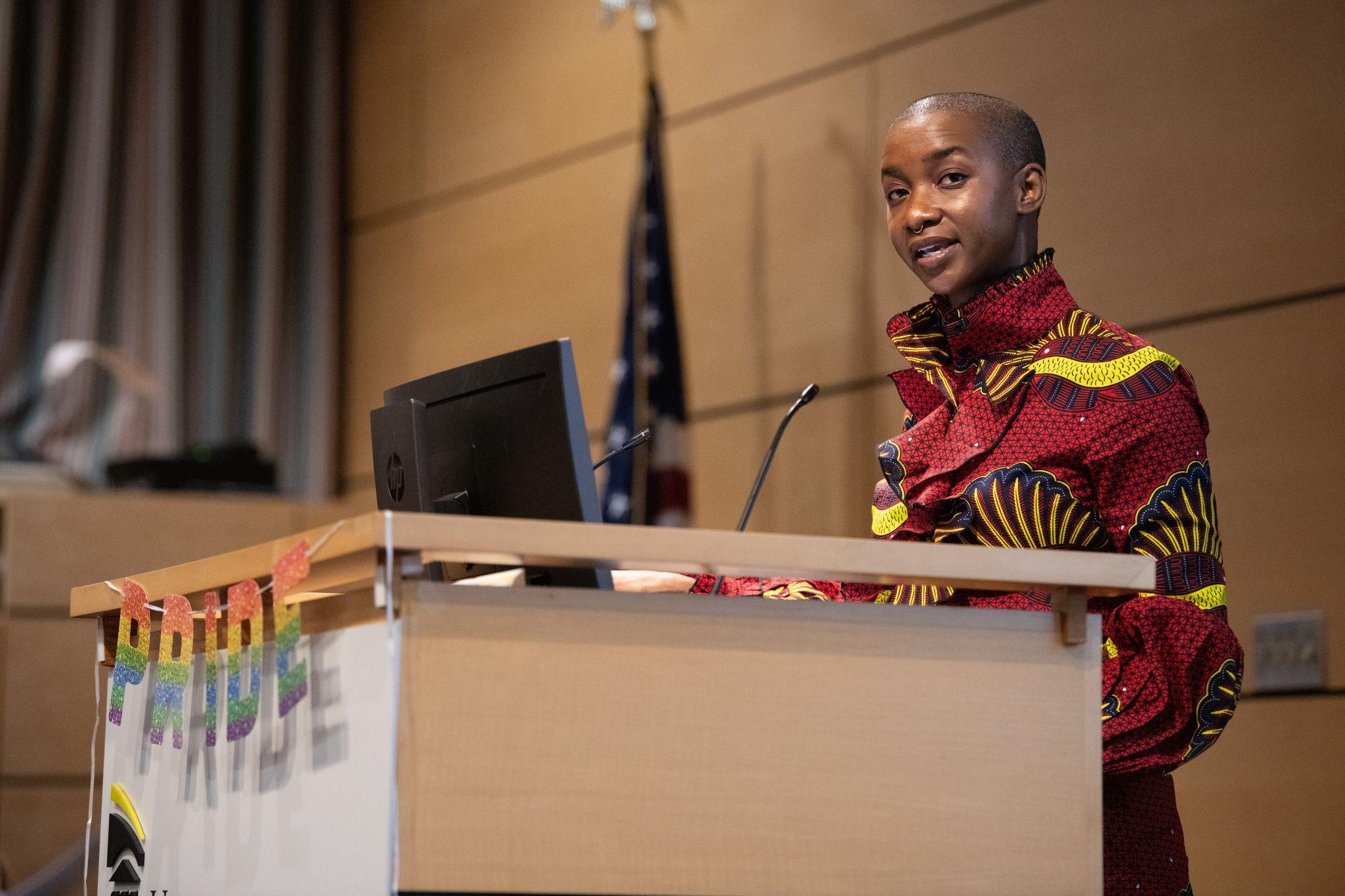
Dr. Shanéa Thomas (he/she/Dr.) is on a mission to get individuals in the LGBTQ+ community the mental health care – and the empathy – they need and deserve.
Research shows that LGBTQ people are more likely to suffer from anxiety, depression, suicidal ideation and substance abuse, and less likely to access health care services. The disparities are especially pronounced for people of color and for trans and nonbinary people. But despite increased visibility, some legal protections, and remarkable community resilience, these disparities – including a lack of access to mental health care – persist.
This Pride month and every month, Thomas is working to change that outlook. Ever since volunteering his summers as a candy striper at the local hospital in Hampton, VA, where he grew up, Thomas has worked in health and care services.
Early on in his career as a social worker, he saw the virtual absence of services geared towards the needs of queer youth. When he came out himself as queer and non-binary, he committed to reaching as many people as possible with both the information and the empathetic approach necessary to close the gap.
Now, Thomas, an assistant clinical professor at University of Maryland’s School of Public Health and a social worker, trains practitioners, educators and other community groups and service providers on LGBTQ competency and sexual health education.
For Thomas, adopting an intersectional approach that meets the diverse identities and experiences within the LGTBQ+ community is essential to ensure meaningful appropriate care for all.
“The LGBTQ+ community is not a monolith. An intersectional approach emphasizes inclusivity and the multiple complex identities that we live,” Thomas says. “It also recognizes the systemic inequities in health services.”
Whether teaching in the classroom, facilitating trainings at UMD’s Prevention Research Center (PRC), or working with service providers and practitioners across the D.C. metro area, Thomas brings his full self, often offering his own life experience as a teaching tool.
“For some people in my trainings or in the classroom I'm one of the first non-binary people that they have met. So I open myself up and say, ‘I am a black, queer, non-binary person, you are more than welcome to ask me questions.’”
Briana Boakye, who recently graduated with a BS in Family Science, appreciated learning about the importance of an inclusive approach to providing services.
“One thing I really learned in Dr. Thomas’ class is how important it is in delivering good quality, health and human services to be knowledgeable about the different communities of individuals that you're providing services to and to really understand the barriers they encounter to receiving these services.”
Ultimately Thomas believes that to ensure that queer, trans and gender expansive people get the mental health care they need, service providers and health care workers must deepen their empathy and expand their conception of LGBTQ+ health issues.
“LGBTQ issues are not just for this one community. Thinking about sex and gender is not just for queer folks, it’s for everybody. Gender affirming care, thinking about pronouns, about gender roles and identities, is for everybody. We think these things are LGBTQ specific, but it’s larger than that, they are human issues,” Thomas said.
In Thomas’ work as a grief counselor at the Wendt Center for Loss and Healing, showing up with empathy is essential.
“Shanéa has a way of creating safety, and allowing people to wrestle with challenging topics such that all shame and judgment is removed,” said Melissa Sellevaag, LICSW and director of Wendt’s Training Institute. Thomas shows “that your opinion and your thoughts are valuable. And that to me is so important.”
Thomas sees this part of the work as a critical component of providing effective, respectful and affirming care. By fostering empathy, healthcare providers can create environments where LGBTQ+ individuals feel validated, supported, and empowered to achieve optimal health and well-being.
For Thomas, at the end of the day, it is care and compassion that will make the difference.
“Empathy is really at the core of this work. Empathy and love.”